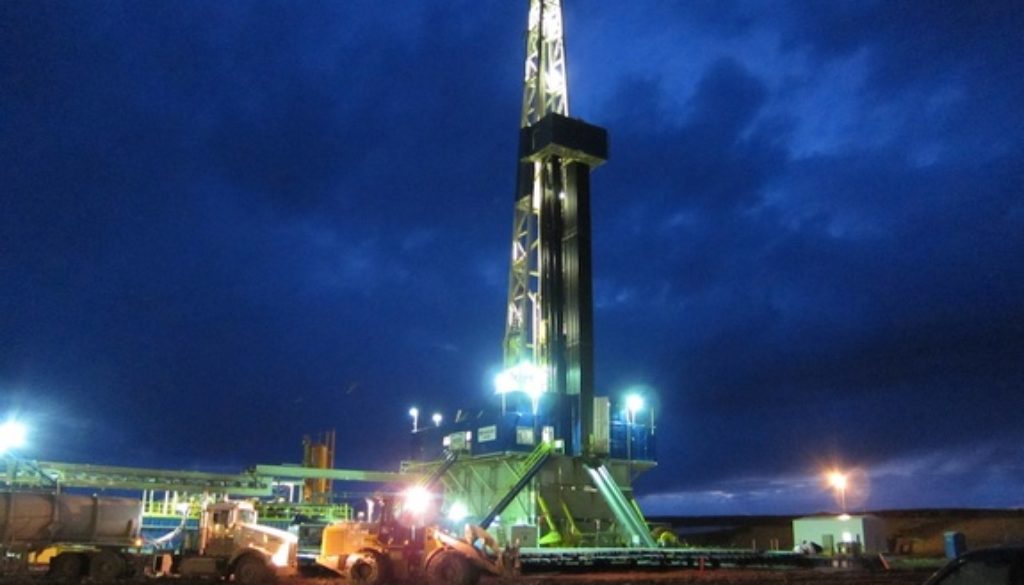Advocates to Senator Brown: Reduce Methane Leaks to Create Jobs, Protect Workers and the Environment
By Rob McCulloch, BlueGreen Alliance and Melanie Houston, Ohio Environmental Council
On April 8, labor and environmental advocates hosted Senator Brown and local union members and elected officials for a roundtable discussion about the U.S. Environmental Protection Agency’s (EPA) new methane standards for the oil and gas industry. The discussion focused on how we can create critically needed jobs and improve working conditions for workers while also providing important environmental protections for Ohio’s at risk communities. Most in the room agreed that this can be accomplished by fixing leaks and reducing methane emissions in the oil and gas sector. The roundtable was held at the Noble County Health Department in Caldwell, Ohio.
The EPA’s proposed Emission Standard for New and Modified Sources for the Oil and Natural Gas Sector represents a huge step towards tackling methane leaks. We are hearing that this standard will get the final stamp of approval by EPA Administrator Gina McCarthy in the coming weeks. Stakeholders at the meeting took the opportunity to emphasize to the Senator how important it is to expand these guidelines to oil and gas equipment currently operating. These “existing sources” are estimated to account for up to 90 percent of oil and gas sector leaks and emissions by 2018.
 |
||
|
|
While the energy sector has made strides to increase the efficiency of our natural gas systems in recent years, leaking methane continues to harm communities and the environment. Leaking pipes and systems are a continuing hazard for workers and communities as methane comes packaged with health-harming air toxics. Leaks also waste valuable energy resources. Pound for pound, atmospheric methane is orders of magnitude more potent than carbon dioxide and is the second largest contributor to climate change (estimated at 10 percent of total U.S. greenhouse gas emissions).
Leaks are sometimes due to accidental releases, but often they can be attributed to outmoded practices and obsolete technology. This lost and leaking natural gas costs billions of dollars’ every year— nationwide these upstream activities waste the amount of gas it takes to heat nearly 8 million homes. Ohio’s oil and gas sector wastes an estimated 13,000 metric tons of natural gas from leaks. That’s the equivalent to the amount of natural gas needed to heat 8,500 Ohio homes!
Low-cost solutions already exist to plug these industrial gas leaks and power more homes and businesses, and some companies have made the investment to deploy durable, less leak-prone systems in order to improve efficiency. However, only 1 percent of the industry has adopted these practices. This is exactly why voluntary measures aren’t enough.
Studies show that the energy sector could cut their emissions and leaks, using off-the-shelf technology, by up to half in five years at a cost of less than 1 cent per thousand cubic feet of natural gas (mcf)—a fraction of a percent of market prices.
Ohio has 12 companies operating 16 facilities across the state producing leak reduction technologies that can make these energy activities safer and more efficient, ranking 9th among states. The potential benefits of the methane standard may be even better than we think.
Low-cost solutions already exist to plug these industrial gas leaks and power more homes and businesses, and some companies have made the investment to deploy durable, less leak-prone systems in order to improve efficiency. However, only 1 percent of the industry has adopted these practices. This is exactly why voluntary measures aren’t enough.
Upgrading industry practices and outdated technology means better working conditions and stronger job opportunities for frontline oil and gas workers. Unionized workers are eminently qualified to identify and repair leaks and implement methane-reducing technologies. They have strong training and qualification programs that ensure upgrades and repairs are done safely and effectively.
These common-sense methane standards will benefit workers and our communities. We applaud Senator Brown for taking a good part of his day to discuss why reducing methane leaks are important from the perspective of those workers and public interest advocates. Ultimately, we hope he will become an ally in efforts to establish strong rules to rein in unnecessary methane pollution from the oil and gas industry.

